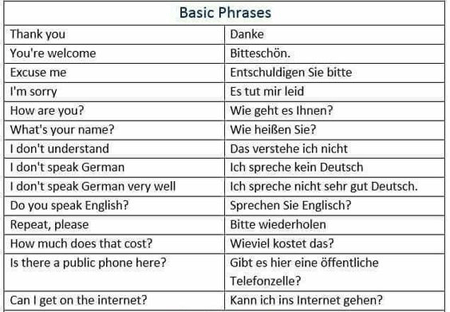
Until you get better at the language, it’s also okay to say and write subject>verb>object. Not every sentence will have one, but if it does, you’ll have a better idea of which word is the subject or not, due to how the determinant changes for the masculine nouns in German.Īs I mentioned, the word for “the” does eventually change in front of feminine and neutral nouns, too, though not as frequently. When you are first starting to learn the language, look for the masculine noun in the sentence. However, it’s the determinant for the masculine noun in the sentence that changes the most from case to case. In this case, they might be telling you that this specific dog is the one that is biting the man and not another dog.Īll nouns in German have genders, and to an extent, you’ll see the determinant change before each noun, regardless of whether it’s masculine, feminine or neuter. So, why would you put “den Mann” at the beginning of the sentence when clearly, the dog is the subject? Germans will do this when they want to emphasize something. It is the gender and the case that tells German speakers what role a noun plays in the sentence, not the word order. Any other time a masculine noun is in the sentence, it will have another determinant (“the” word) in front of it, depending on the role that word is playing in the sentence.

When it comes to masculine nouns in German, the only time they will use “der” as their “the” word is when they are the subject of the sentence. “Įvery native German speaker on some level understands that the word “den” in front of “Mann” means that the man is the receiver of the action. Since German is not a word-order language, “Der Hund beißt den Mann” has a similar meaning as “Den Mann beißt der Hund. The dog is always the subject of the sentence, regardless of the word order. However, because German has cases and genders, the second sentence means exactly the same thing as the first sentence does.

In other words, the second sentence in the German appears to read “The man bites the dog.” That’s because you’re thinking as a native English speaker, as a person who must speak sentences in an exact order for them to make sense. However, you can also write the sentence this way:

However, once you move over to the accusative case, this becomes “den Mann.” It’s the same German noun: Mann. Nominative is the subject case of the sentence, like “the man” in “The man is a native English speaker. For example, the word for “man” in German (der Mann) is masculine. They are either masculine, feminine or neuter (neutral). Then, we’ll talk about why this matters in German sentence structure and word order.Īll nouns in German have genders. Let’s talk about both of these elements separately first.

English has cases, but not to the extent that German does. The German language has both genders, like Spanish and French, and cases. However, German is different for a couple of reasons. Then, the sentence takes on an entirely different meaning. In English, you have to say sentences in a pretty specific order. First, it’s important to note that, unlike English, German is not a word-order language.


 0 kommentar(er)
0 kommentar(er)
